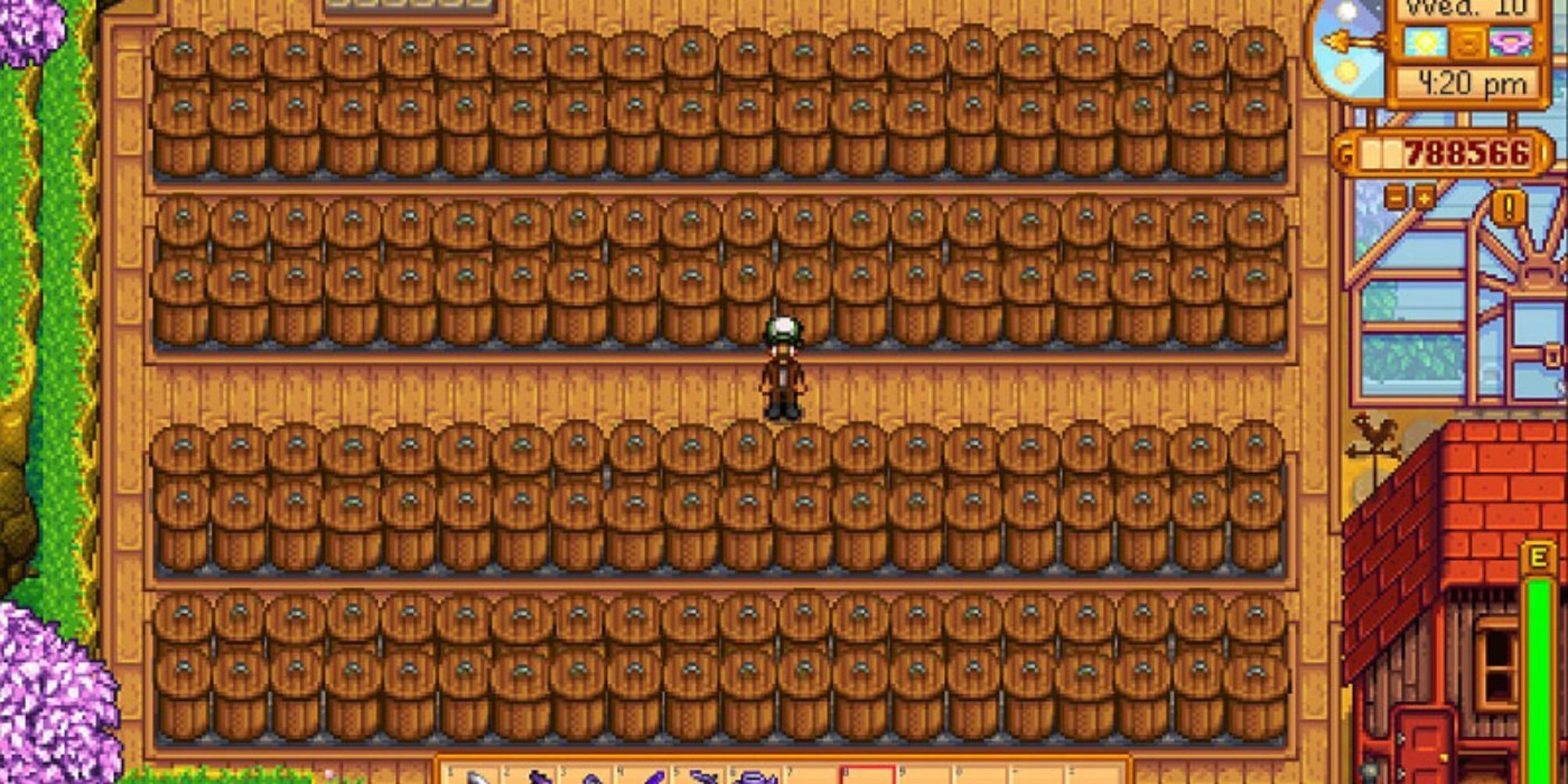When I first dived into the world of Stardew Valley as a fresh rookie farmer, cutting down trees, clearing land, and planting the fifteen parsnip seeds with which Mayor Lewis generously provided me, I was absolutely not ready to be bombarded with the ubiquity of machines that the game’s in-depth crafting and leveling systems had to offer, stretching from simple furnaces to mayonnaise machines to bins that produce bait on their own. With its mechanics encouraging and even requiring players to rely on the accumulation of these machines in order to progress, Stardew Valley is a Marxian utopia that embodies the Law of Capital Accumulation in its game mechanics and basic gameplay. When we expect Stardew Valley to be a casual game that upholds escapism, the game slaps us in the face and tears it apart.
In the economic theories of Karl Marx, the General Law of Capital Accumulation concerns the relationship between constant capital and variable capital, that is, between means of production and labor. As productivity increases – an inevitable outcome in the capitalist model, Marx argues, due to its inherent nature of seeking the production of maximum surplus-value – “an increasingly large part [of production would] be applied to the production of the means of production.” [1]
Capitalism, thus, has the tendency to produce self-activating objectified labor, which in turn constantly squeezes out human labor in the entire equation of production, eventually ruling over human labor which would be “determined and regulated on all sides by the movement of the machinery, not the other way round.” [2] Thus, Marx interprets the interplay between labor and capital in an interesting dynamic in which the roles completely flip at a certain stage of productivity.
Stardew Valley, from its very first cutscene, spares no effort to establish itself as a game about escaping from modern capitalist society. As our main character sits vexing in the cubicle of Joja Inc. and opens the envelope from his grandpa, and then making their way to Pelican Town, it is expected that they would truly, as grandpa’s letter states, “from the burden of modern life.” With the mechanics of the game gradually unraveling before the eyes of the player, however, they would soon discover that Pelican Town is not the heavenly retreat but the same capitalist hell in a different form.

The player, seeking to escape their stressful urban life under the grip of modern society, would find refuge in Pelican Town… but would they really?
The player starts off with little tools and resources, or little capital and little productivity in Marxian terms. As they progress through leveling up, discovering new places, and completing quests, their capability of production gradually increases. Fixed capital such as machines, farm buildings, and animals begin to populate the farm. The player, inadvertently and subtly, experiences a change in role. They gradually find themselves spending less and less time watering plants, tiling, fishing, and feeding animals.
Instead, efforts are dedicated to feeding eggs into the mayonnaise machine, taking milk from coops and feeding them into the cheese press, gathering roe from the self-producing ponds and throwing them into preservers, feeding bait into crab pots, the list goes on. Every morning when our protagonist wakes up, they are faced with their machines, scattered all around their farm, demanding the player’s input – for what, otherwise, would be the purpose of building them? At this stage, the dynamic between the player and the game appears to undergo a shift – the game begins to take control of the player, populating their mind with the burden of sustaining the system of production that they themself, in their progression of the game that inevitably constitutes the accumulation of capital, have created.

Is this really the rural retreat life that we are supposed to live? As this Reddit post states, “I keep making these machines to speed up crafting process, but after I have this many, there’s nothing left for them to craft.”[3]

Maybe grandpa actually finds connection with nature because he simply did not level up enough to see the machines, and never asked Robin to build him coops and barns and basements.
In this analysis, I seek to look at Stardew Valley underneath its surface that looks like a casual farming game where the player, alongside their main character, escapes from the burdens of city life. Quite in contrast with this appearance, from the first second that our protagonist steps out of the bus and onto his barren farm, we are designed to follow them into this cycle of capital accumulation, this cycle that starts with fifteen parsnip seeds but gradually transmutes into the beast of the system of machines that begin to control our play. Despite our best efforts to avoid Morris, his nefarious smirk, and his conglomerate that seeks to take over Pelican Town, Stardew Valley is still about being captured and enslaved by the iron cage of capitalism. With this centrality of the principle of capital accumulation in the rhythm of play in Stardew Valley, hence, this game may turn out to be a mirror reflective of the entrenchment of the endless pursuit of capital as the fundamental modus operandi of our modern society.
References:
[1] Marx, Karl. “The Labour Process and Alienation in Machinery and Science.” The Grundrisse, edited by David McLellan, Harper Torchbooks, New York, NY, 1972, pp. 132–143.[2] Ibid.
[3] u/dheavoca123. “I Keep Making These Machines to Speed up Crafting Process, but after I Have This Many, There’s Nothing Left for Them to Craft.” Reddit, 8 Dec. 2020, https://www.reddit.com/r/StardewValley/comments/k92blx/i_keep_making_these_machines_to_speed_up_crafting/.
